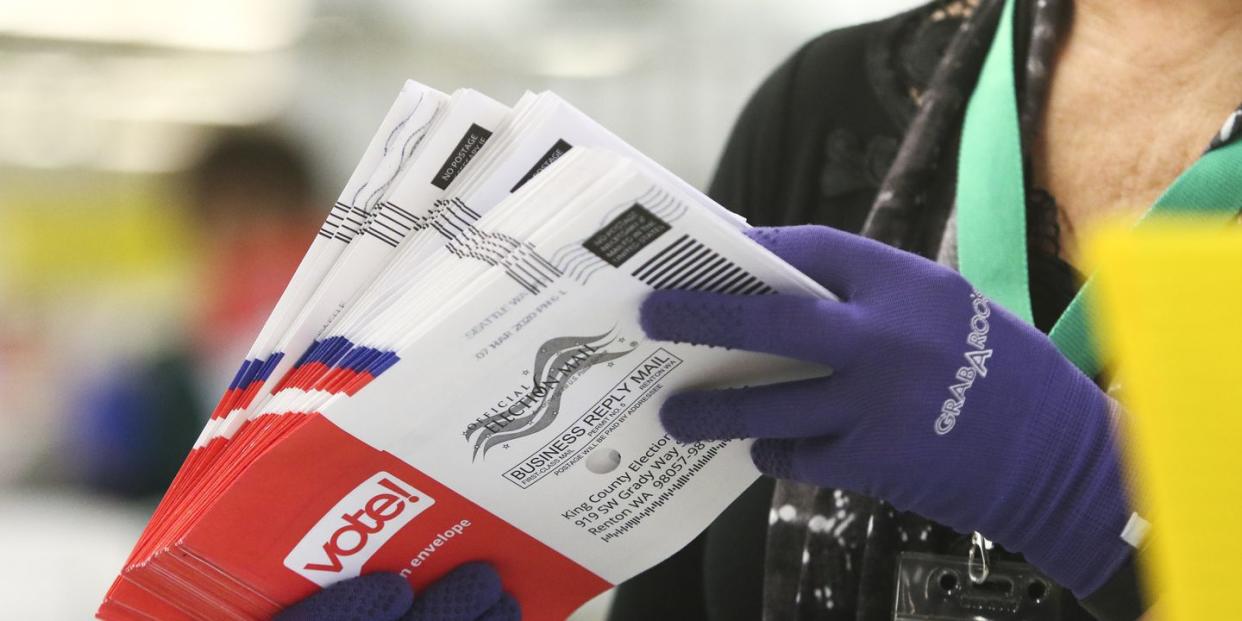Let's Make Some Coronavirus Response Measures Permanent

The pandemic era is truly upon us now, as the continent of Europe moves rapidly towards lockdown and many U.S. cities are following suit. The markets are in free fall, apparently feeling sick after the sugar rush of the White House press conference that began half an hour before Friday's closing bell. We are beginning to internalize that the novel coronavirus, which causes the disease COVID-19, will not just require us to change our lives and habits. It will not just reveal so many tears in the fabric of our society that predate the crisis. It may well reshape our world and how we govern it on a permanent basis.
And perhaps it should. If the crisis has exposed preexisting conditions, at least some of the remedies we come up with to respond now should be adopted permanently. Here are a few which might qualify.
1) Vote By Mail
As the primary season continues, there will be a growing push to put a stop to in-person voting. It's not just that older people, who are more at risk, show up in disproportionate numbers to vote. Polling stations are also often staffed by retirees, who usually fit the risk profile. It is dangerous to persist with this. There are calls now to postpone these elections, if only for a few weeks, and allow people to vote by mail. Since 1998, Oregon has sent its registered voters a ballot via the U.S. Postal Service three weeks before each election. They mark it up and send it back in before Election Day. That's it. The system has led to strong voter turnout: 68 percent of registered voters participated in 2016. Oregon has also embraced automatic voter registration with some success.
If we do indeed move to vote-by-mail to respond to the demands of this moment, why not just keep it that way for the future? The United States has miserable rates of voter participation for any number of reasons, but surely high among them are the number of barriers to voting we insist on constructing. Why in some states can you only vote in person on one day of the year, which is not a holiday, meaning you have to take time off work to do so? Hourly workers—working-class folks—may not have that luxury, which might just be the point. But let's use this crisis as an opportunity to make our democracy fuller and more vibrant: allow people to vote from home for a couple of weeks every election, and start automatically registering people to vote. What's the downside, unless you don't want people voting?
2) Paid Sick Leave
Speaking of working-class Americans, they will be hardest hit by this crisis. If you work hourly, if you work at a restaurant or bar or hotel, if you depend on tips, you are going to be in some trouble. We should be looking at straight-up giving people money to bridge the gap. It's hard to see any other solution beyond what erstwhile presidential candidate Andrew Yang was calling his "Freedom Dividend." Give people $1,000 a month so they can keep their lives going while it is literally impossible for them to go to work and get paid. If we try this and we like it, we ought to consider keeping it. In general, we'll have to look at a moratorium on rents and debt obligations, at least for hourly workers.
But one thing we should definitely change—and subsequently keep—is our atrocious paid sick leave policy (or lack of one). 179 countries have guaranteed paid sick leave for workers, but the United States does not. Particularly in sectors like the restaurant industry, sick employees are faced with the choice of coming to work sick or not getting paid. One result is that, in 2014, the CDC found "20 percent of food service workers had come to work at least once in the previous year 'while sick with vomiting or diarrhea.'" House Democrats and the White House have come to an agreement on a proposal guaranteeing two weeks of paid sick leave, but as the Washington Post pointed out, it doesn't quite cover anyone. It should, and we should make it permanent. The current system is inhumane and, as this crisis has illustrated, dangerous.

3) Universal healthcare
A lot of last night's Democratic debate, conducted, blessedly, without an audience—another coronavirus response measure we should adopt in perpetuity—Joe Biden and Bernie Sanders channelled their overall world views into their different strategies for pandemic response. Biden billed his outlook as a response to the present: go at this crisis immediately with whatever it takes, including the vital task of removing an unfit president before he does further damage. Sanders saw the outbreak as an opportunity to remake the entire system, its inefficiencies and immoralities soon to be laid bare under the coming strain.
There's something to both of these responses, but Sanders's gets at the more essential reality. With so many tens of millions of people still un- or under-insured, we will all soon feel the effects of having a healthcare system that a big chunk of our society cannot afford to participate in. People will resist getting tested, or going to the hospital, or calling an ambulance, for fear they cannot afford it. Sanders made the point that while he is often criticized for including undocumented immigrants in his plan, these folks are human beings who can catch and transmit the virus and will need medical care now like anyone else, even if we pretend they don't really exist. The idea is that when everyone has coverage, we can all benefit in aggregate. This is what public health is about. It's what you do if you consider your society a commonwealth. Maybe more of us will by the time all this is over.
You Might Also Like
